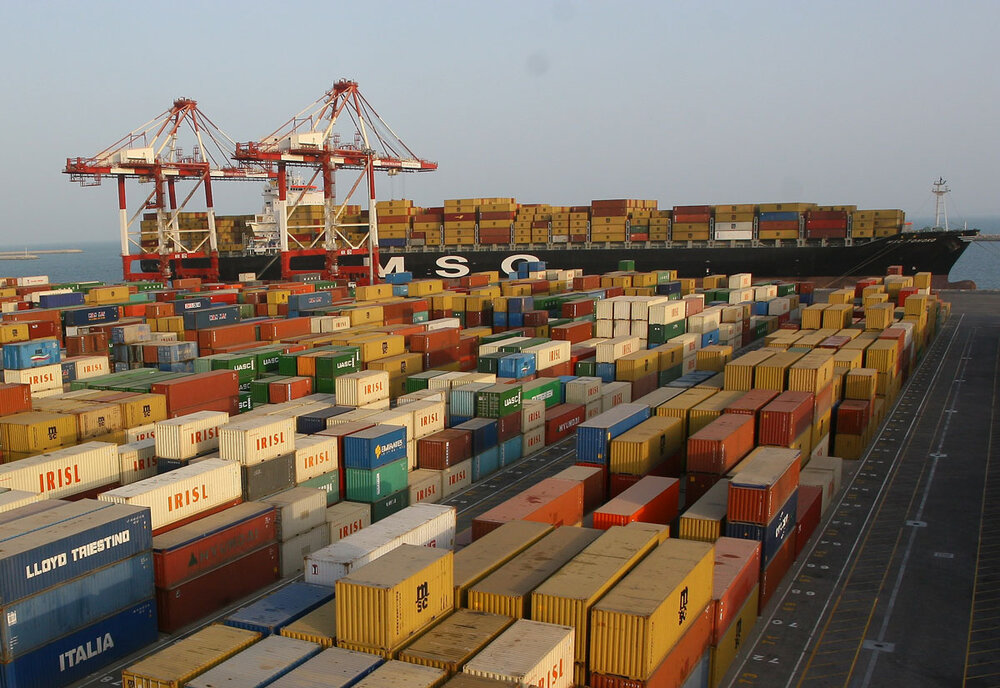Ports’ vital role in combatting sanctions

While Iran is combatting the U.S. unilateral sanctions on its economy, the country’s ports as the major gates of exports and imports play some significant role in this combat. This role makes all-out support to ports and more development of them serious and vital.
Such necessity has led the government to define projects for more development of the ports and also take some measures to encourage investment making in ports, in addition to facilitate loading and unloading of goods, especially basic commodities, there.
Loading and unloading of commodities in Chabahar Port, an important port in southeast of Iran, during the first two months of the current Iranian calendar year (March 21-May 21) has risen 30 percent compared to the same period of time in the past year, according to a deputy at Iran’s Ports and Maritime Organization (PMO).
Hossein Shahdadi, the deputy head of Sistan-Baluchestan Province’s Ports and Maritime Department, also announced that Chabahar is ready for on-time unloading of basic goods required inside the country.
In last November, the United States announced that it would grant a sanctions waiver for the Iranian-Indian port project at Chabahar.
After years of negotiations, Iran has awarded the development project of its strategic Chabahar Port to India, and the South Asian country committed $500 million to build two new berths in this port.
Chabahar Port’s exemption from the new round of the U.S. sanctions on Iran is an opportunity for development of transit via this port, according to PMO Head Mohammad Rastad.
This port’s exemption from the sanctions provides the opportunity for benefitting from the potentials and infrastructures of Chabahar which will definitely boost exports and imports, Rastad said, adding that it would be an achievement for the country’s economy.
Also, on May 21, the deputy director of the Islamic Republic of Iran Customs Administration (IRICA) said following a directive by President Hassan Rouhani, IRICA is providing new facilities for importers of basic goods which makes them able to clear their commodities in less than an hour.
“For basic goods such as meat, system formalities and clearance procedures will be carried out in less than an hour and importers can transport their goods soon after,” Mehrdad Jamal Orounaqi said.
Connecting the ports which are the major cargo hubs of the country to the national railway network is another project seriously followed up by the government.
The head of Islamic Republic of Iran Railways (known as RAI) has recently announced that 59 kilometers of railroads are planned to be built for connecting the major cargo hubs in the country to the national railway network by the end of current Iranian calendar year (March 19, 2020).
Saeed Rasouli mentioned linking the cargo hubs to the railway network as one of the main priorities of RAI in the current year.
He said linking the cargo centers to the railway network has been started and implementation of the scheduled plan for the current year is on the agenda, adding that he major cargo centers are planned to be linked to the railway based on a multi-year schedule.
All such measures and projects indicate the strong will for strengthening the role of ports specially during this time of sanctions.
And they are bringing results; as the head of PMO has announced that all port development projects are underway with no halt.
Despite the sanctions and the difficulties resulted from them, there are still high traffics in the ports which show that the country’s shipping and port activities are running well, Mohammad Rastad has said and underlined taking advantage of such potential to materialize economic objectives of the country.
